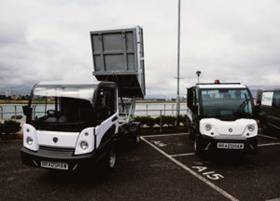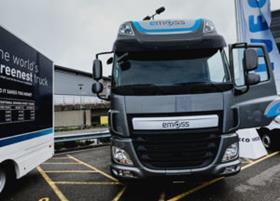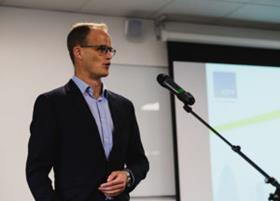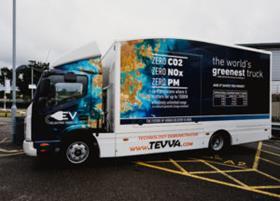Enabling freight operators to unlock the potential of electric vehicles (EVs) in their fleets was the focus of a recent LoCity roadshow held in East London.
The event was the first in a series of four alternative-fuel workshops provided by TfL to support its industry-led LoCity programme.
LoCity was launched last year to help the freight sector prepare for the capital’s Ultra Low Emission Zone in 2020.
Delegates at the roadshow heard from London-based operators at Hackney Council, Clear Channel and Heathrow Airport about their real-life experiences and learning curves in running EVs.
Useful tips shared included:
■ Range – it is essential to make sure you pick the right routes for the vehicles: relatively predictable, low average speed and returning to base at night. Also take into account weather conditions.
■ Maintenance – savvy operators can drive down third-party maintenance costs, because much less routine servicing is needed compared with ICE counterparts.
■ Silent technology – drivers love the quiet running of the vehicles and experience less fatigue. However, it is important to factor in additional safety measures for pedestrians who might not hear them approaching.
Understanding the charging and power requirements was also a key focus of the day, as this is often cited as one of the main challenges facing operators considering switching to EVs.

UK Power Networks helped operators understand the steps they might need to take if looking to install recharging points at their sites and used the event to launch a guide about the options available when connecting to the electricity network.
They explained that requirements would vary depending on factors such as whether an operator is thinking about charging a single vehicle overnight, multiple vehicles, or requires rapid charging facilities on site.
TfL principal strategy planner Judith Hayton, meanwhile, explained the work taking place in London to significantly increase the capital’s public charging network, with at least 300 rapid charging points in place by 2020.

A range of 10 electric freight vehicles were exhibited on the day - from small utility trucks supplied by Bradshaw Electric Vehicles through to a converted tractor unit with an Emoss all-electric driveline and 2.5-litre LPG gas range extender - and everything in between.
Operators were encouraged to talk to all the manufacturers and suppliers about the best electric models for their own fleet requirements and learn all they could about range, maintenance and running costs.
Headline sponsor Mercedes-Benz Trucks shared its commitment to electrification across all vehicle ranges and confirmed that by 2025, a quarter of all vehicles in the Daimler group would be electric.
Its 7.5-tonne all-electric eCanter will be operating with customers in London from September, with series production to start in 2019. "We see this being one of the mainstays of our business going forward”, said national key account manager Paul Robertson.

Fergus Worthy (pictured), freight and fleet programme project manager at TfL, said: “The first LoCity Roadshow was a great success, bringing together fleets, electric vehicle manufacturers and suppliers, and infrastructure providers.
“The London mayor wants to work towards a zero-carbon city, so transport managers should start thinking about the implications of operating EVs.”
He added that through the series of roadshows, as well as training, online tools and case studies, “LoCity is helping fleets make informed decisions about their vehicle choice”.
If you are interested in finding out more about the use of EVs in you fleet, why not get in touch with LoCity to find out about any trials, cost analysis and technical guidance you might require: locity.org.uk

The next LoCity roadshow taking place will focus on gas-powered CVs and will be held on 21 September at the Twickenham Stoop Stadium. To register your interest to attend, please email: locityroadshows.co.uk
- Frevue - a four-and-a-half year EU project into the viability of electric freight vehicles in cities - last month revealed significant health and cost benefits from making the move to EVs.














